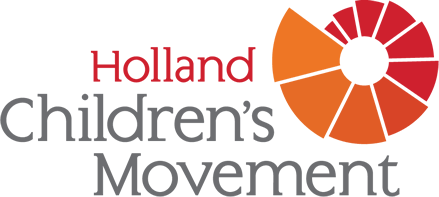Thursday, March 13, 2025
Chairman Hardin and members of the Health and Human Services Committee,
My name is Garret Swanson, G-A-R-R-E-T S-W-A-N-S-O-N and I am here on behalf of the Holland Children’s Movement, a nonpartisan, not-for-profit organization that strives to fulfill its vision for Nebraska to become a beacon in economic security and opportunity for all children and families, in support of LB283.
Good to see you all again Senators. Most of you have seen this bill before. Senator Day previously carried it and we thank Senator Spivey for picking up the baton and racing it toward the finish line. Although the bill is the same, the circumstances are different. No longer is DHHS contending with the wind-down of COVID-era Medicaid rules, and IServe is now the primary portal through which Nebraskans can apply for benefits.
I’d like to thank and congratulate the Department for its implementation of IServe. The streamlining of several benefits applications in one web portal is a boon for Nebraskans. However, DHHS’s mission to help Nebraskans live better lives is ongoing, and LB283 will help the Department provide better service for Nebraskans at a lower cost.
Senator Spivey already touched on how ELE will save Nebraska money, just as it has for other states. Our research concludes that it will more than pay for itself. Now Senators, I have full faith that the Department can implement automatic enrollment without growing error rates. In 2016, the Office of Inspector General audited and published three reports on the ELE program and its implementation. The three reports concluded that states that implemented ELE were overwhelmingly happy with their decision to do so, and it saved them time and money. However, there were hiccups. As the fiscal note states, every year states that implement ELE send a representative sample of their ELE populations to CMS and CMS tests their validity.
The 2016 OIG audit gives us insight into problems with error rates and why Nebraska will avoid them. States that did have errors made mistakes such as: not checking the citizenship of an applicant, something Nebraska already does; several states attributed errors due to a lack of data sharing agreements and a unified benefits system, Nebraska has solved for that; one state did not follow their own plan in implementing the program, I have complete faith DHHS can properly implement its plan. We have over 10 years of examples to follow in implementing ELE, but I do not believe there will be a concern with error rates.
States are still trending toward implementing ELE, Georgia being the most recent state to adopt ELE in 2022. Republican State Representative Sharon Cooper carried the bill citing Georgia’s neighbors, Alabama, South Carolina, and Louisiana as successfully implementing ELE. The law did pass with almost every Republican and Democrat in the State House and Senate voting for it. Georgia Department of Family and Children Services Head Tom Rawlings cited ELE as critical to reducing the cost of processing applications and helping rural families with limited internet access to receive benefits.
I understand there is some hesitancy from some members of this Committee to implement ELE while there is uncertainty with the federal government. In Trump’s first term, Republicans and President Trump decided not to cut funding or rescind authorization for ELE. In fact, Republicans and President Trump extended CHIP and the ELE authorization until 2027. That gives us more than enough time to re-evaluate if the ELE authorization is changed or rescinded. Even then, I have seen no indication that President Trump is interested in cutting CHIP.
Thank you for your time, Senators.

Garret Swanson
Director of Strategic Engagement
Holland Children's Movement

